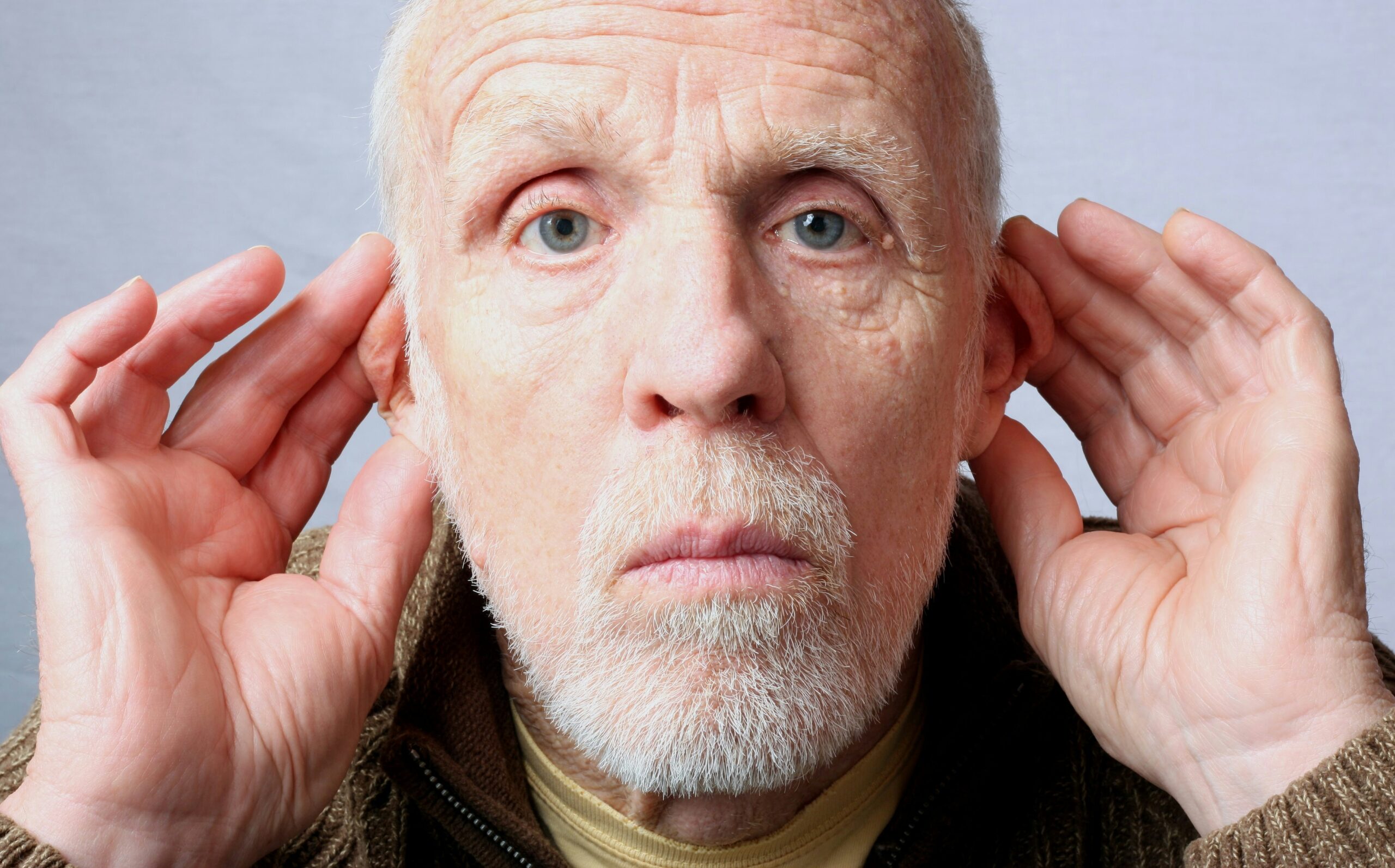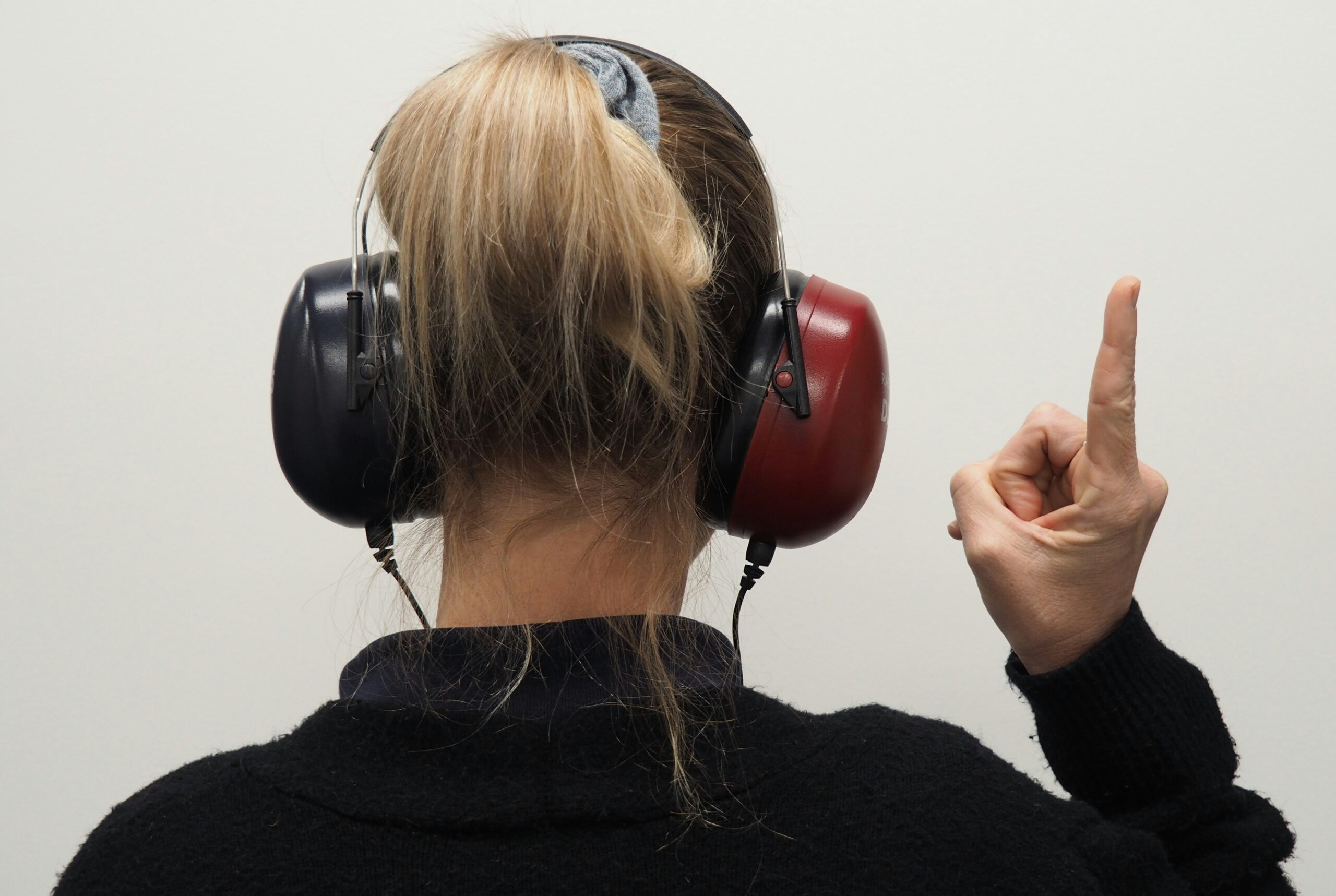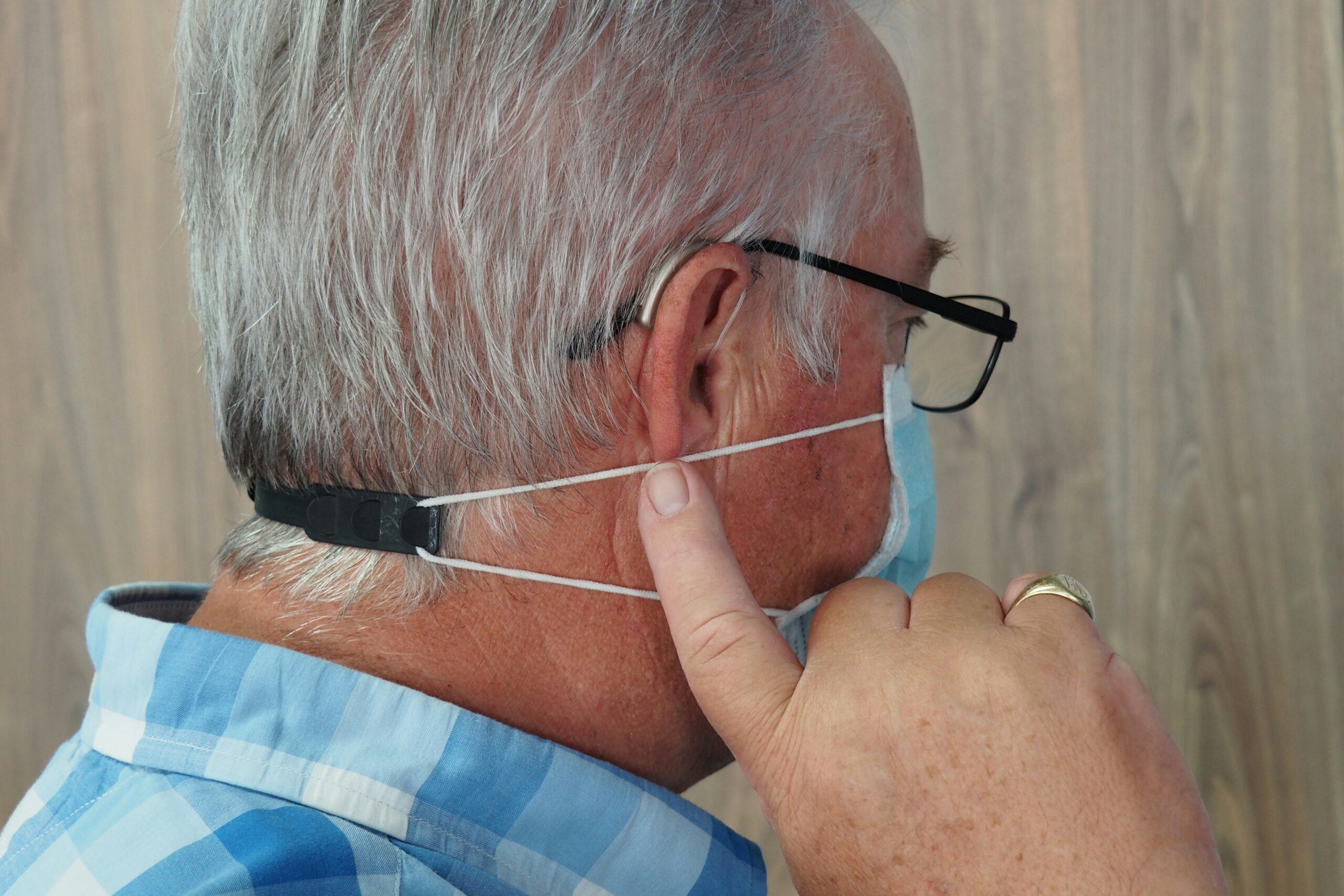An audiologist is a critical therapeutic master who analyzes and treats hearing and adjusts issues. Their broad information of sound-related science makes them the go-to pros for anybody encountering vertigo, tinnitus, or hearing misfortune. An audiologist can assist you in exploring the sound world, whether you are a youthful child with hearing challenges or a more seasoned grown-up with adjustment issues.
These experts, who have audiology doctorates, combine their logical preparation with viable practice. They perform in-depth audiometric evaluations, recommend and adjust assistive hardware, and provide rehabilitative treatments that improve patients' quality of life. Audiologists are more than restorative pros; they improve people's lives by helping those who have misplaced the capacity to move relentlessly and with clarity.

Audiology is the study of hearing and adjustment. It includes both personal and logical points, such as sound wave material science and complex internal ear exercises. Audiology may be a field that combines treatment and innovation to understand not just how people listen but, moreover, what happens when they don't.
In substance, audiology is concerned with association and sound. This division offers various administrations, such as cochlear implants, fittings for hearing help, hearing tests, and recovery programs. To decide how complicated conditions like hyperacusis, tinnitus, and anomalies in adjustment affect day-to-day working, audiologists need to look into these issues. They conduct interdisciplinary inquiries within otolaryngology, discourse pathology, and neurology. What is the extreme objective? Avoid hearing misfortune wherever conceivable, recognize it when it happens, and offer productive treatments that assist individuals in re-establishing their connections with the sounds and individuals they care about.
Who makes a great candidate for an audiology visit? For everybody who has inconvenience hearing or adjusting, that's the most effortless reply. Issues like these emerge in any arrangement of life. Have you noted that it's getting harder and harder to take after discussions? Have you noted that you're turning up the music volume more habitually? Are sounds getting to be suppressed, or are your ears ringing continually? All of them infer that consulting an audiologist may be fundamental.
Adolescents are not resistant. Hearing impairment can be identified if a youth is inert to sounds, has trouble creating discourse, or struggles scholastically. Untreated hearing disabilities can cause major formative delays; early discovery is vital.
Talking to an audiologist about adjusting issues such as vertigo, discombobulation, or instability is prescribed. Indeed, these indications might not appear like much to begin with, but they can lower your quality of life. Indeed, however, people with no indications ought to still get normal checkups, especially if they utilize ototoxic solutions, work in a boisterous setting, or have a family history of hearing misfortune. To appropriately address hearing and adjust shortages, early mediation is vital.
A specialist specializing in diagnosing and treating issues relating to the nose, throat, ears, and other head and neck tissues is called an otolaryngologist, or ENT. They have finished therapeutic school and their residency preparation, which includes treating an extent of therapeutic and surgical infections. ENTs have broad skills overseeing challenging circumstances, including cancer, dangerous diseases, and tumors. Moreover, they are certified to carry out medications, including cochlear inserts, sinus surgery, and tonsillectomy.
In contrast, an audiologist could be a vital pro specializing in determining and treating hearing and adjustment issues. Specialist of Audiology (Au.D.) degrees are ordinarily obtained by audiologists specializing in non-medical components of hearing well-being, such as sound-related restoration, hearing help fittings, and hearing tests. Audiologists specialize in recognizing hearing misfortune and other sound-related clutter and giving treatment approaches to help oversee them; they don't conduct methods or endorse drugs.
In outline, the essential refinements between an ENT and an audiologist are based on their preparation, capabilities, and specialties. ENTs are therapeutic experts with surgical mastery who treat various ear, nose, and throat ailments, though audiologists concentrate on the non-surgical treatment of hearing and balance deficiencies.
Diagnostic procedures utilized by audiologists can be summed up within the underneath tests:
Among numerous other instruments in an audiologist's tool compartment, pure-tone audiometry is one of the foremost pivotal. This easy-to-use but exact test decides how sensitive your ears are to diverse frequencies. The strategy is direct: you tune in to a sequence of tones while wearing earphones, signaling once you listen to each one. An audiogram, which shows how well you'll be able to listen, shows any confinements.
Speech audiometry![]() goes one step ahead and assesses your comprehension and recognition of talked words. This exam assesses your comprehension of spoken dialect, which is imperative for everyday discussion, and your hearing capacity. You'll be expected to rehash words or sentences at different volume levels throughout the exam. The discoveries offer critical modern experiences of hearing, especially in boisterous settings.
goes one step ahead and assesses your comprehension and recognition of talked words. This exam assesses your comprehension of spoken dialect, which is imperative for everyday discussion, and your hearing capacity. You'll be expected to rehash words or sentences at different volume levels throughout the exam. The discoveries offer critical modern experiences of hearing, especially in boisterous settings.
Tympanometry may be a symptomatic strategy for deciding the status of your center ear. A modest test is put into your ear canal, and the development of your eardrum is monitored as weight shifts are discussed. This test can identify a wide run of middle-ear issues, counting liquid collection, holes, and Eustachian tube brokenness. Tympanometry gives valuable data on the fundamental causes of hearing misfortune.
Otoacoustic emissions (OAEs) testing may be a complex method that assesses the cochlea's functioning, particularly the external hair cells that are essential for hearing. Your ear is examined with a modest instrument that records sounds and the cochlea's response. This test may recognize hearing issues that other tests might neglect, making it particularly supportive for infant hearing appraisals.
Audiologists can use the auditory brainstem response![]() (ABR) test to memorize almost all of the sound-related system's capacities. This methodology is commonly utilized with newborn and youthful children since it does not request dynamic support. During the test, electrodes are embedded on the scalp to distinguish electrical action within the brain in reaction to sound. ABR can be distinguished not as hearing misfortune but as neurological problems that may turn off hearing.
(ABR) test to memorize almost all of the sound-related system's capacities. This methodology is commonly utilized with newborn and youthful children since it does not request dynamic support. During the test, electrodes are embedded on the scalp to distinguish electrical action within the brain in reaction to sound. ABR can be distinguished not as hearing misfortune but as neurological problems that may turn off hearing.
When adjustment issues occur, vestibular testing is required. This battery of tests, which incorporates videonystagmography (VNG), rotary chair testing, and vestibular evoked myogenic potentials (VEMP), assesses how well the inward ear maintains harmony. These tests can help analyze vestibular neuritis, benign paroxysmal positional vertigo (BPPV), and Meniere's sickness, empowering more centered treatment.

Well-being issues dealt with by audiologists incorporate the following:
Harm to the sound-related nerve or the hair cells within the cochlea is the most common cause of sensorineural hearing misfortune, the foremost predominant kind of lasting hearing misfortune. This hearing misfortune is analyzed by audiologists, who moreover offer medications like hearing help, which are gadgets that increment sound-related openness. Cochlear inserts may be conceivable when hearing help is insufficient for somebody with extreme hearing misfortune. These gadgets open up a modern audio channel.
When something, generally within the center or external ear, anticipates sound from getting to the internal ear, it results in conductive hearing loss. To recognize this, audiologists utilize pure-tone audiometry and tympanometry. Treatment options incorporate surgical and restorative methods like stopping an eardrum break or evacuating wax, as well as establishing bone conduction gadgets or obstruction-avoiding hearing aids.
Mixed hearing loss could be a complex disorder that comprises sensorineural and conductive hearing loss. Treatment requires a multimodal procedure that regularly incorporates audiological and pharmacological treatment. To treat the sensorineural component, audiologists may prescribe hearing help; in any case, surgical operations may be required to address the conductive concerns.
Tinnitus, or consistent ringing in your ears, can potentially convert your life instead of aggravating it. Audiologists can give you different adapting techniques and are experts in treating tinnitus. Indeed, despite no known remedy, tinnitus retraining therapy (TRT), sound treatment, and counseling can be very viable. Moreover, a few hearing helps have sound generators that give alleviation by concealing tinnitus.
Audiologists are at the cutting edge of determining and treating adjustment issues. Vestibular neuritis, Meniere's infection, and BPPV are all possibly debilitating conditions. To determine the fundamental cause, audiologists may propose vestibular rehabilitation treatment (VRT), which involves exercises to upgrade, adjust, and reduce vertigo. Surgery or drugs may be required in more genuine circumstances.
Cautious administration is fundamental for hyperacusis and misophonia![]() , conditions that cause standard clamors to become awkward, loud, or candidly annoying. Audiologists evaluate these conditions utilizing specific testing and restorative histories, and they offer medications like counseling, sound treatment, and cognitive-behavioral therapy (CBT). The objectives of these treatments are to assist patients live superior lives and have more noteworthy control over how they respond.
, conditions that cause standard clamors to become awkward, loud, or candidly annoying. Audiologists evaluate these conditions utilizing specific testing and restorative histories, and they offer medications like counseling, sound treatment, and cognitive-behavioral therapy (CBT). The objectives of these treatments are to assist patients live superior lives and have more noteworthy control over how they respond.

It would be best if you planned to make the most of your arrangement with an audiologist. To begin with, keep track of all vital issues you've experienced, especially any ear issues, surgeries, or introduction to uproarious commotions. Since a few drugs can impair hearing, a list of all endorsed medicines is additionally fundamental.
Consider your indications, counting what you've noted, when they started, and how they've affected your life. Do you find it troublesome to take after discourses or feel woozy? The audiologist can utilize this data to alter their appraisal.
If you've already had a hearing test, bring the discoveries if it's not too much trouble. They offer a beginning point for observing modifications all through time. You should bring any assistive gadgets you require, such as hearing help, in case they need to be balanced or supplanted.
During the session, you should expect an exhaustive evaluation of your hearing and adjustment history. The audiologist will ask about your occupation, interface, and any social challenges caused by adjustment or hearing issues. By employing a comprehensive approach, the treatment arrangement takes into consideration both the indications and how they influence your day-to-day activities.
More than just medical experts, audiologists are a person's lifesavers for individuals with adjustment and hearing issues. Their information on diagnosing and treating these conditions can enormously upgrade a person's quality of life by recapturing their certainty and capacity to talk and move.
Treatment options for hearing misfortune and adjustment issues are growing alongside the field of audiology, giving trust and moving forward comes about for those who experience these conditions. By giving tinnitus alleviation, adjusting alterations, and hearing help fittings, audiologists help clients reintegrate into their environment and drive more satisfying lives.